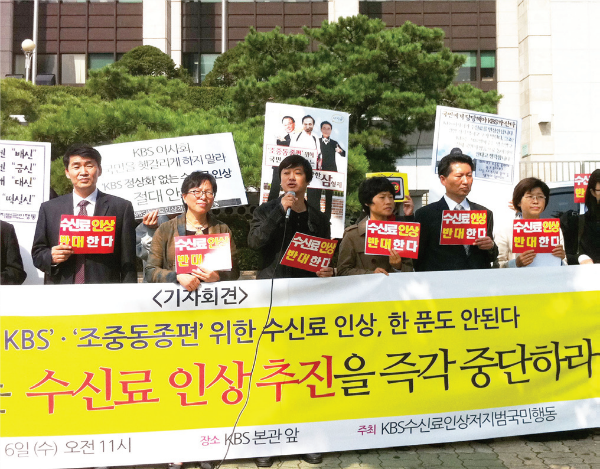
Television (TV) has been an essential part of our lives for a very long time; a number of TV owners are paying the public broadcasting license fee. Since 1981, the public broadcasting license fee has been fixed at around 2,500, but even with this fixed license fee, the public broadcasting stations are struggling to keep up with production costs. This is why they send a plan for an increase of the license fee to Congress every year. The current government and Congress, however, are not in favor of the public broadcasting stations’ ideas of raising the license fee, so they are still trying to reach an agreement with them. The SungKyun Times (SKT), therefore, finds out what the public broadcasting license fee is, opinions toward a raise in license fee, and the future of license fees in Korea.
Public Broadcasting and Its License Fee
What is Public Broadcasting?
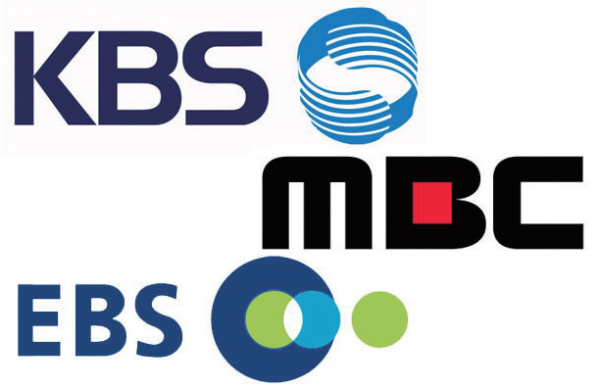
A public broadcasting station is known as a broadcasting company that does not get influenced by private corporations or the government. The station provides its viewers with undisturbed news and keeps in line with the public interest through its independent status. To present such broadcasts, the stations accept a license fees from their viewers. Broadcasting stations in Korea are categorized into three types: national broadcasting, private broadcasting, and public broadcasting. National broadcasting is run by the government; private broadcasting is run by individuals or organizations and is operated by advertisement fees, while public broadcasting collects the license fees from its viewers as already mentioned.
가
In Korea, there are three public broadcasting stations: the Korean Broadcasting System (KBS), the Munhwa Broadcasting Corporation (MBC), and the Educational Broadcasting System (EBS). Firstly, one of the channels owned by KBS called 1TV is solely operated by license fees paid by the viewers and features no advertisements. Next, even though MBC funds its operation fees through advertisements, it is still legally categorized as a public broadcasting station since 70% of its shares are owned by the national public utility foundation called the Foundation of Broadcast Culture. Since MBC features advertisements which is a method of increasing revenue used by private broadcasting stations, it does not collect license fees from its viewers. Lastly, EBS is a broadcasting station focused on education. It used to be affiliated with KBSin the past, but it later became an independent broadcasting company. According to the Broadcasting Act Article 68, EBS receives license fees from KBS; KBS provides a portion of the license fee it receives to EBS for finance. The Broadcasting Act Enforcement Article 49 states that KBS needs to provide 3% of its license fee to EBS every year.
가
Current View of Increase of the License Fee in Korea
1. Background Information About Freezing the License Fee
The current license fee has been frozen at 2,500. The previous 18th and 19th Congresses denied the requests to raise the license fee to 3,500 and 4,000. Inflation also caused deficits. Some other problems include reduced market share, a decline in viewers, a rise in production costs continued deficits, management issues, lack of political independence, and arguments about certain programs’ biases. Since public broadcasting stations can only receive license fees, they cannot raise funds from advertisements; thus, they need to consider public interest or advertisement revenue. Unfortunately, this also creates a dilemma: whether to keep operating as a public broadcasting station or as a private broadcasting station.
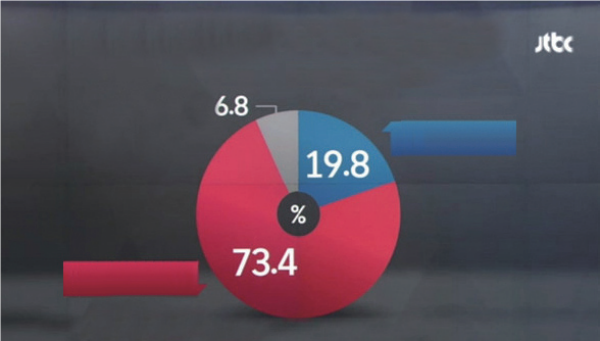
2. Complex Process of Raising the License Fee
가
The first step that KBS needs to take in order to request for a raise of the license fee is to follow the Broadcasting Act Article 65. Firstly, the KBS’s board of directors must formally request a raise to the Korea Communications Commission. Once the license fee yield report has been reviewed, and the opinions of the viewers committee are collected in turn in order to come up with solutions. After the decision is made, it is then transferred to the Korea Communications Commission again for approval, which can take up to 60 days. Finally, the request is sent to Congress. Congress then decides if the raise is going to be accepted or denied. Moreover, not only does it take a lot of time due to the complex process, but also the fact that no one can come to a compromise is also a big problem.
가
Pros and Cons of the Raising Public Broadcasting License Fees
가가
Pros
가가
1. Lack of Workforce and Inadequate Workspace
가
Yoon Jun-ho, the assistant chairman and the head of the license fee actualization group, stated that the rise of Internet and new media has reduced advertisement revenue. He also noted that a raise in the license fee is needed due to the increase of the production cost. Moreover, the lack of workforce is another problem. Because of the lack of workforce, the channels are running inefficiently; the wages, depreciation costs, and other expenses are continually rising. In 2012, MBC reported a surplus of 81 billion while KBS reported a deficit of 6.2 billion. The EBS labor union also stated that their public finance which is the sum of the 3% license fee from KBS and the broadcasting development fund right now is at 20%; therefore it is insufficient to run an efficient operation. The increased reliance on the advertisement revenue has expanded the number of commercial broadcasting services, which might potentially pressure the public broadcasting stations to send biased news.
가
2. License Fees Unconcerned About Inflation
가
It has been 37 years since the license fee was frozen at 2,500 in Korea. Compared to foreign public broadcasting stations, the license fees for Korean public broadcasting have been much lower than those of other countries. In addition, according to the consumer price index, the monetary value rose 3.8 times compared to that of 2017. This means that the fee of 2,500 in 1981 equals to 9,595 in 2017. While Korea’s license fee has remained frozen for 37 years, England, France, Germany, and Japan has been raising the cost of their licensefees by 24, 18, 8, and 4 times respectively. England and Germany’s public broadcasting license fees are 8.2 and 9.5 times more than Korea’s. Other countries have also had a steady raise in license fees. England and France applied indexation, which means that it automatically increases the license fees based on inflation.
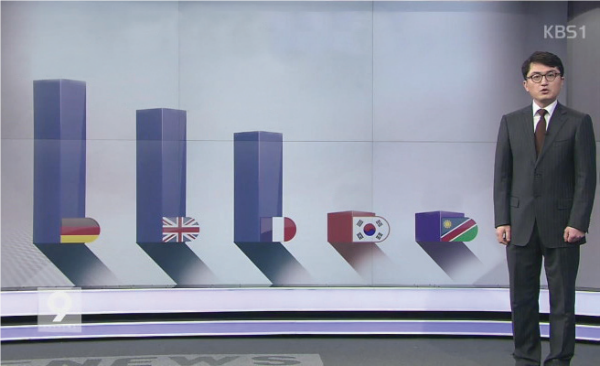
Cons
가
1. Public’s Dissent Toward Raising the License Fee
가
Viewers argue that it is crucial for the public broadcasting stations to restore faith towards their viewers and to do their duty properly. An Jin-geol, secretary general of the People’s Solidarity for Participatory Democracy, stated that viewers would not be fond of a raise in the license fee. It is unlikely that viewers would agree and pay the raised fee as well. Professor Jeon Gyu-chan at Korea National University of Arts commented that while the raise in license fees could be beneficial in some aspects, some of the viewers might think it is useless. It is also important to consider that other countries which have a higher license fee also have a higher minimum wage.
가
2. Management and Financing Problems
가
Reckless management of the public broadcasting stations is causing financial problems and bias. The viewers believe that public broadcasting needs to be politically independent and focused on public interests rather than asking for a raise in license fees. The efficiency of management has also been questioned; excessive wages and the reckless management of KBS caused a stir and raised questions about its fairness. To counter such claims, KBS has stated that it has reduced its workforce to control wages and to improve efficiency. KBS experienced a reduction in the number of employees to 9.6%, which shows that it is maintaining efficient control over its management. It is also important, however, to take note that the number for managers increased by 7.6%. Although the wage budget decreased for subordinates, the wage budget for managers increased, seeing an overall increase in the wage budget. The accounting management of KBS obeys the Broadcasting Act Article 55 which ensures that KBS follows the business accounting standards and the Government Enterprise Budget Act. The lack of transparency prevents the viewers from knowing how their license fees are being used. The Korea Communications Commission also released a statement, saying that KBS needs to reveal the financial figures for each of its channels’ contents.
가
Future Prospects for Improvement
가
Business Restructuring and Transparent Operations
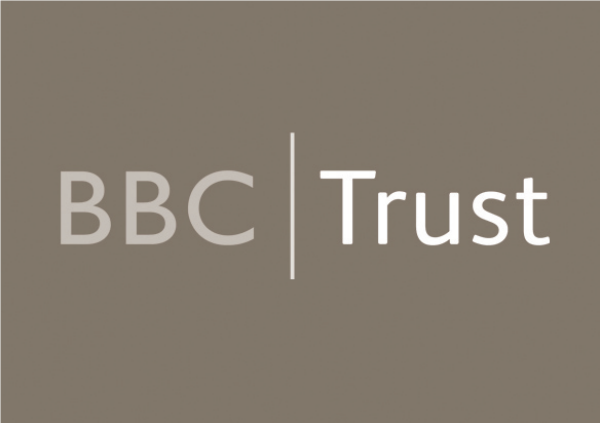
In Korea, there are not enough organizations that can openly scrutinize and influence public broadcasting stations in the interest of the viewers. There are, however, good examples to follow in many other countries. For example, England’s BBC Trust is an organization formed in 2007 that acts as a separate entity from the English government, designed to keep track and influence the license fees of the BBC. The BBC Trust investigates the future managing direction of BBC and even advises BBC on ways in which it can improve. Comprised of 12 members, the BBC Trust include members from each of the four United Kingdom nations (Wales, England, Scotland, and North Ireland) with an international member representing foreign viewers. As a globally renowned public broadcasting, BBC receives 90% of its finance from license fees. It is likely, then, that Korea needs an organization like the BBC Trust, which is independent and empowered enough to influence the public broadcasting stations. In this way, the viewers’ opinions could be more considered than now.
가
Needs to Empower the Viewer’s Committee
가
To reform the public broadcasting, the Network of Citizens for Public Broadcasting Development formed an organization in 2005 with 120 members from the academic, legal, and financial sectors. Their main goal is to reestablish fairness, diversity, improved management and independence in public broadcasting. With organizations like this that represent the viewers empowered, KBS and other public broadcasting services can also maintain their accounting transparency.
가
In the future, it is important for public broadcasting stations not to lose the viewers’ faith in them. After all, the success of public broadcasting stations can only be achieved by having a mutually beneficial relationship between the viewers and the broadcasting stations. If one side starts questioning the other, then the public broadcasting industry will soon crumble. Therefore, restoring the faith needs to be of utmost importance for the public broadcasting stations in Korea.
